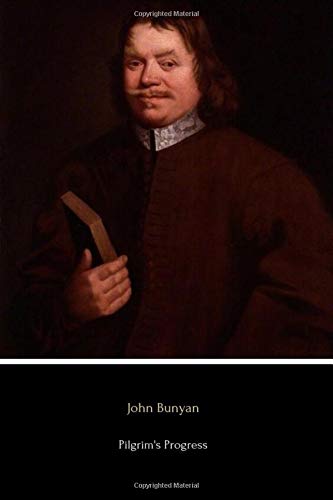-
The Pilgrim's Progress
John Bunyan
eBook (, Aug. 29, 2020)The Pilgrim's Progress from This World, to That Which Is to Come is a 1678 Christian allegory written by John Bunyan. It is regarded as one of the most significant works of religious, theological fiction in English literature. It has been translated into more than 200 languages, and has never been out of print.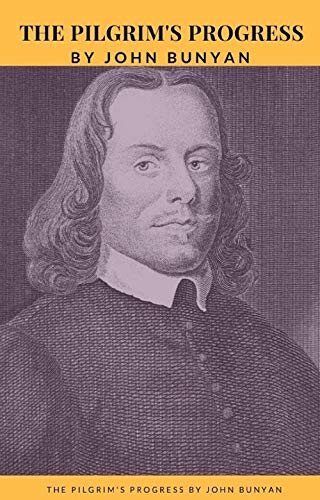
-
The Pilgrim's Progress
John Bunyan, Jesse Lyman Hurlbut
eBook (Xist Classics, March 20, 2015)The Pilgrim's Progress by John Bunyan is one of the most significan works of English literature. Originally published in 1678, this allegory is the classic story of Christian (an everyman character) and his search for redemption. This edition has be edited by Dr. Jesse Lyman Hurlbut with simplified (yet still elegant and complicated) language for both children and adults. This Xist Classics edition has been professionally formatted for e-readers with a linked table of contents. This ebook also contains a bonus book club leadership guide and discussion questions. We hope you’ll share this book with your friends, neighbors and colleagues and can’t wait to hear what you have to say about it.Xist Publishing is a digital-first publisher. Xist Publishing creates books for the touchscreen generation and is dedicated to helping everyone develop a lifetime love of reading, no matter what form it takes Get your next Xist Classic title for Kindle here: http://amzn.to/1A7cKKl Find all our our books for Kindle here: http://amzn.to/1PooxLl Sign up for the Xist Publishing Newsletter here. Find more great titles on our website.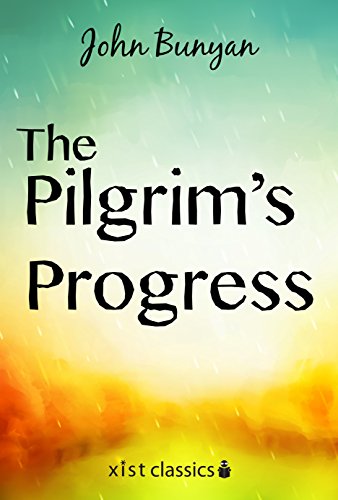
-
The Pilgrim's Progress
John Bunyan, Charles S. Baldwin
Paperback (Digireads.com, May 31, 2016)John Bunyan was a man who felt, above all else, the need to preach the word of God. However during 17th century England it was illegal to preach outside the auspices of the Church of England. His failure to obey this law would land him in the Bedfordshire county jail twice, first for a period of twelve years, and then later for a period of six months. Bunyan could have avoided this harsh sentence if he had simply promised not to continue his preaching, however his faith would not allow him to do so. It was during this incarceration that he would begin composition of “The Pilgrim’s Progress,” a work that has come to be regarded as one of the most important works of religious English literature. First published in 1678, “The Pilgrim’s Progress” is a Christian allegory in the same vein of many such works of Bunyan’s time. It concerns the travel of an everyman named Christian who travels from his home, “The City of Destruction”, to “The Celestial City” atop Mount Zion. “The City of Destruction” is a parallel for this world and “The Celestial City” for the next. In this characterization the journey of Christian can be seen as the quest of man to escape the burden of Earthly sin and find salvation for his soul in heaven. This edition contains both the first and second part of “The Pilgrim’s Progress,” includes an introduction by Charles S. Baldwin, and is printed on premium acid-free paper.
-
The Pilgrim's Progress
John Bunyan
Paperback (CreateSpace Independent Publishing Platform, Nov. 3, 2018)The Pilgrim's Progress from This World, to That Which Is to Come is a 1678 Christian allegory written by John Bunyan. It is regarded as one of the most significant works of religious English literature, has been translated into more than 200 languages, and has never been out of print. It has also been cited as the first novel written in English.Bunyan began his work while in the Bedfordshire county prison for violations of the Conventicle Act of 1664, which prohibited the holding of religious services outside the auspices of the established Church of England. Early Bunyan scholars such as John Brown believed The Pilgrim's Progress was begun in Bunyan's second, shorter imprisonment for six months in 1675, but more recent scholars such as Roger Sharrock believe that it was begun during Bunyan's initial, more lengthy imprisonment from 1660 to 1672 right after he had written his spiritual autobiography Grace Abounding to the Chief of Sinners.The English text comprises 108,260 words and is divided into two parts, each reading as a continuous narrative with no chapter divisions. The first part was completed in 1677 and entered into the Stationers' Register on 22 December 1677. It was licensed and entered in the "Term Catalogue" on 18 February 1678, which is looked upon as the date of first publication. After the first edition of the first part in 1678, an expanded edition, with additions written after Bunyan was freed, appeared in 1679. The Second Part appeared in 1684. There were eleven editions of the first part in John Bunyan's lifetime, published in successive years from 1678 to 1685 and in 1688, and there were two editions of the second part, published in 1684 and 1686.
-
The Pilgrim's Progress
John Bunyan, Steve R Cleary, Robert Fernandez
Hardcover (Revelation Media, Sept. 4, 2019)John Bunyan's classic is now a feature-length animated film. This illustrated storybook features many of the imaginative scenes, colorful characters, and classic quotes presented in the animated film.
-
The Pilgrim's Progress
John Bunyan
eBook (Chapel Library, March 3, 2014)Another quality eBook from Chapel Library. THE PILGRIM’S PROGRESS traces the journey of Christian from his first conviction of sin, through his conversion, trials, suffering, and victorious joy, and ultimately across the River of Death to the Celestial City.Pilgrim’s Progress is read with the greatest pleasure. – George Whitefield (1714-1770)I find this book so full of matter, that I can seldom go through more than a page or half a page at a time. – John Newton (1725-1807)Next to the Bible, the book that I value most is Pilgrim’s Pro-gress. I believe I have read it through at least a hundred times…Prick him anywhere, and you will find that his blood is “bibline,” the very essence of the Bible flows from him. – Charles H. Spurgeon (1834-1892)That tenderest and most theological of books is pulsating with life in every word. – J. Gresham Machen (1881-1937)JOHN BUNYAN (1628-1688) was born of a poor family near Bed-ford, England. He repaired pots and pans before being called to preach the Gospel full time. He was imprisoned in 1660 for re-fusing to compromise with the practices of the Church of Eng-land. While in jail for 12 years, he penned The Pilgrim’s Progress, which has been in continuous print since then and is the second best selling book of all time after the Holy Bible.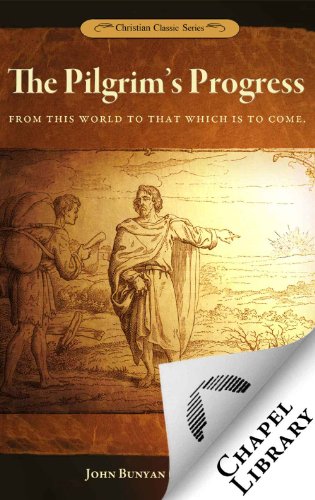
-
The Pilgrim's Progress
Jim Pappas, John Bunyan
Hardcover (Destiny Image Publishers, Jan. 1, 2005)Exciting new levels of love and joy, hope and humor are skillfully woven by master storyteller Jim Pappas, into this enchanting retelling of John Bunyan's immortal classic! Designed to return this spellbinding masterpiece of angels and giants, castles and dragon, to the fireside of the everyday reader. Includes original illustrated artwork.
-
The Pilgrim's Progress
John Bunyan
eBook (e-artnow, Aug. 27, 2013)This carefully crafted ebook: "The Pilgrim's Progress (Unabridged & Annotated with the complete Bible references)" is formatted for your eReader with a functional and detailed table of contents. The Pilgrim's Progress from This World to That Which Is to Come is a Christian allegory written by John Bunyan and published in February, 1678. It is regarded as one of the most significant works of religious English literature, has been translated into more than 200 languages, and has never been out of print. Bunyan began his work while in the Bedfordshire county gaol for violations of the Conventicle Act, which prohibited the holding of religious services outside the auspices of the established Church of England. Early Bunyan scholars like John Brown believed The Pilgrim's Progress was begun in Bunyan's second shorter imprisonment for six months in 1675, but more recent scholars like Roger Sharrock believe that it was begun during Bunyan's initial, more lengthy imprisonment from 1660–72 right after he had written his spiritual autobiography, Grace Abounding to the Chief of Sinners. John Bunyan (28 November 1628 – 31 August 1688) was an English Christian writer and preacher, who is well known for his book The Pilgrim's Progress. Though he became a non-conformist and member of an Independent church, and although he has been described both as a Baptist and as a Congregationalist, he himself preferred to be described simply as a Christian. He is remembered in the Church of England with a Lesser Festival on August 30, and on the liturgical calendar of the Episcopal Church (US) on August 29. Some other Churches of the Anglican Communion, such as the Anglican Church of Australia, honour him on the day of his death (August 31) together with St Aidan of Lindisfarne.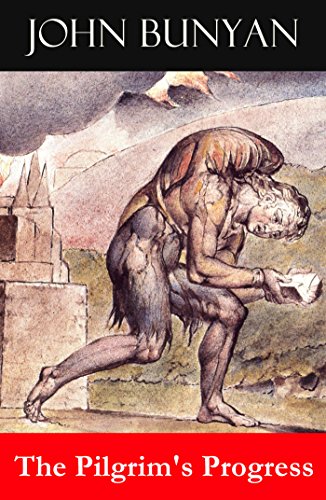
-
Pilgrim's Progress
John Bunyan
Paperback (Digireads.com, Jan. 1, 2007)Begun while John Bunyan was in Bedfordshire county jail serving time for holding religious services outside the auspices of the Church of England, Pilgrim's Progress is considered one of the greatest works of the English language. "Pilgrim's Progress" is a Christian allegory that concerns the path of one's soul to Heaven. John Bunyan published the first part of the "Pilgrim's Progress" in 1678 with a second part to follow in 1679. Contained here in this volume is both the first and second part of "Pilgrim's Progress."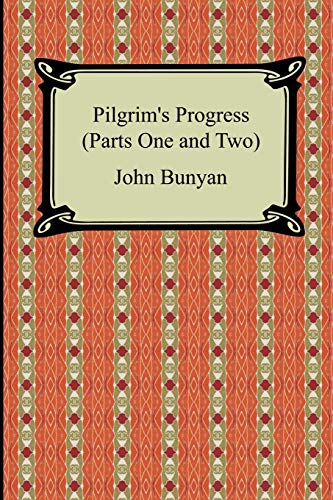
-
The Pilgrim's Progress
John Bunyan
Mass Market Paperback (Signet Classics, April 1, 2002)In an allegorical account of one man's spiritual quest, the pilgrim Christian undertakes the dangerous journey to the Celestial City, experiencing physical and spiritual obstacles, including the Slough of Despond and Doubting Castle, along the way. Reissue.
-
The Pilgrim's Progress
John Bunyan
Paperback (Independently published, Aug. 9, 2019)Published in 1678, The Pilgrim’s Progress is a Christian allegory, believed to be the first novel written in English and considered one of the most influential religious works in the English language. Presented as the narrator’s dream, it chronicles the perilous journey of Christian from his hometown, the City of Destruction, to the Celestial City at the summit of Mount Zion.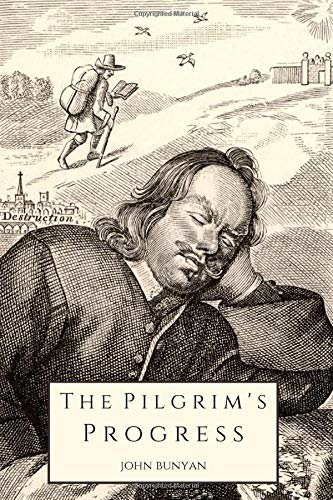
-
Pilgrim's Progress
John Bunyan
Paperback (CreateSpace Independent Publishing Platform, Sept. 11, 2016)With its vivid characterizations, direct and colorful style, and beauty of language, Pilgrim’s Progress has long been one of the most popular books in the English language. The story opens with the author claiming to have had a dream in which he sees the figure of Christian weeping and wondering what to do to avoid the destruction of himself, his family and his town. The rest of the narrative follows Christian on his journey from the City of Destruction via the Slough of Despond, the Hill of Difficulty, the Valley of the Shadow of Death and Vanity Fair over the River of the Water of Life and into the Celestial City.